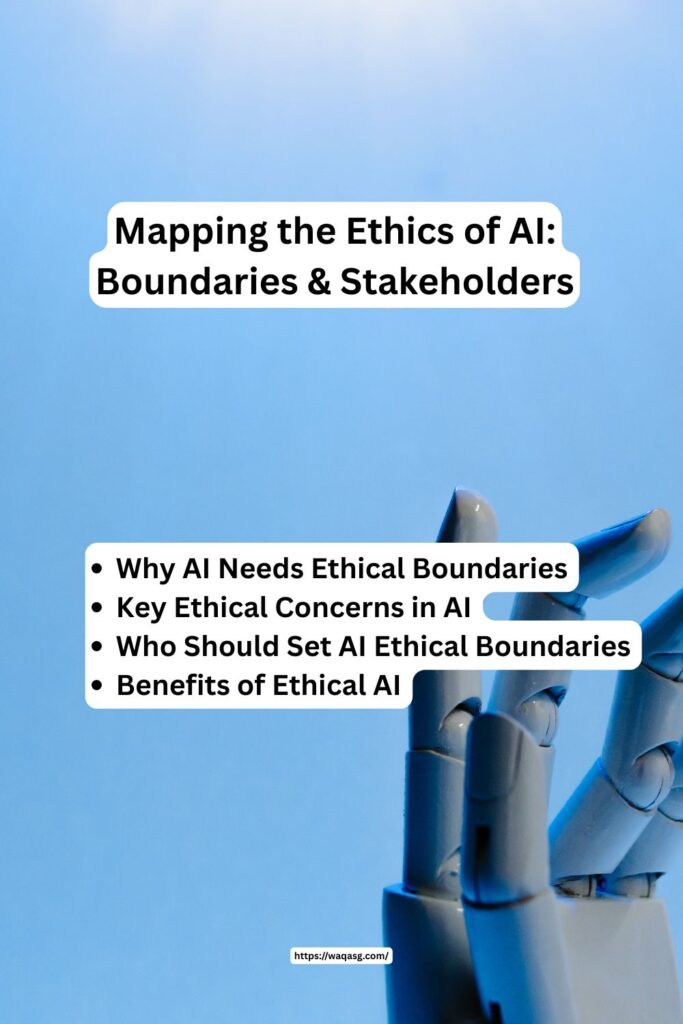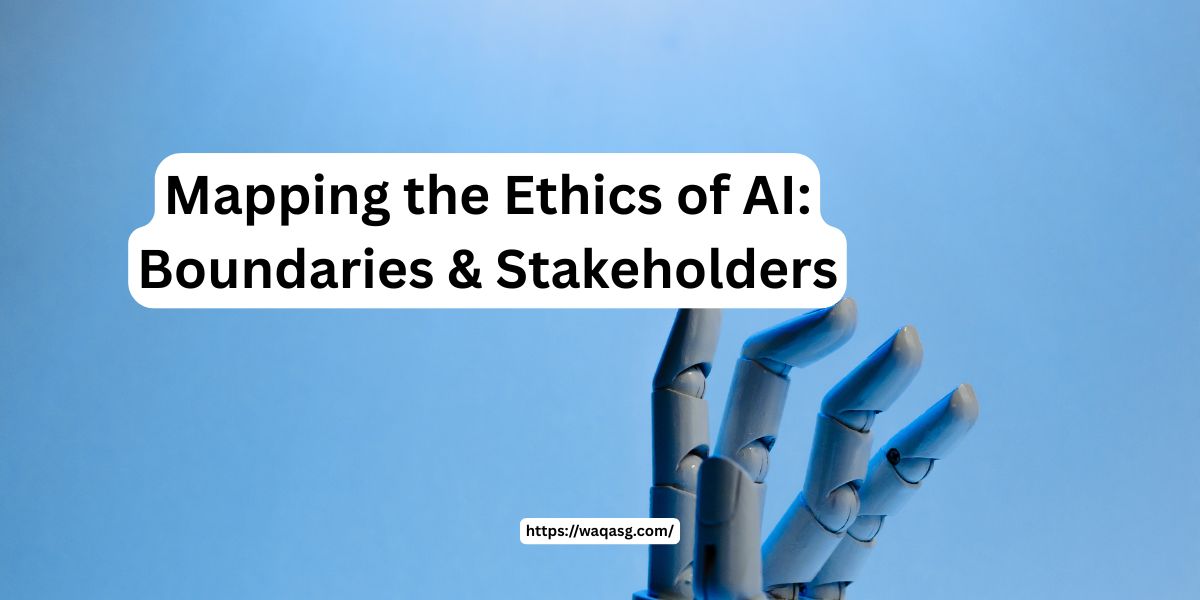Artificial intelligence (AI) has moved rapidly from the pages of science fiction into the fabric of our daily lives. From voice assistants like Alexa to advanced recommendation engines, AI technology influences our decisions, enhances productivity, and reshapes industries. But as AI grows more powerful, the urgent question arises: how do we ensure these intelligent systems remain beneficial and safe for humanity?
This brings us to the critical topic of ethical boundaries in AI—why they’re essential and, importantly, who should be responsible for establishing them.
Why Ethical Boundaries are Essential for AI
Artificial intelligence, by design, learns, adapts, and makes decisions independently. While this capability presents significant benefits, it also raises serious ethical dilemmas. Ethical boundaries are necessary to mitigate risks associated with bias, privacy violations, and unintended consequences.
Mitigating Bias
AI systems are trained on vast datasets. Unfortunately, these datasets often reflect historical biases. For instance, facial recognition technology has repeatedly shown discrepancies in accuracy across different ethnic groups. Ethical boundaries ensure diversity, inclusion, and fairness, mandating that developers actively recognize and address biases.
Protecting Privacy
The growth of AI coincides with increased data collection and analysis. Without clear ethical guidelines, AI-driven data processing risks infringing on individual privacy rights. Establishing boundaries helps companies balance technological advancement with respect for user privacy, protecting consumer data from exploitation and misuse.
Preventing Unintended Consequences
AI’s ability to learn autonomously means it can develop unexpected behaviors. Ethical oversight ensures human values remain central to AI development, avoiding scenarios where AI might act in ways detrimental to societal interests or human welfare.

Who Should Draw These Ethical Boundaries?
Establishing ethical guidelines for AI requires collective input from various stakeholders. No single entity should bear this responsibility alone. Let’s explore the primary players in this vital dialogue.
Governments and Regulators
Government bodies play a critical role in creating laws and regulations that shape AI usage. Regulatory frameworks can set mandatory compliance standards, ensuring technology development adheres to universally accepted ethical principles. For example, the European Union’s AI Act is among the first major legislative efforts aimed specifically at regulating artificial intelligence, creating legal clarity for developers and companies.
Governments must balance innovation with public safety, providing a structured environment for ethical AI without stifling creativity and technological growth.
Tech Companies
Leading technology companies, including Google, Microsoft, OpenAI, and Meta, have an outsized influence over AI’s trajectory. They possess both the resources and responsibility to embed ethical considerations into their development processes from the outset. Tech companies can establish internal ethics committees, publish transparency reports, and engage with external audits to demonstrate accountability.
Companies that prioritize ethics enhance their reputation, foster consumer trust, and potentially gain competitive advantages through greater acceptance and adoption of their technologies.
Academia and Researchers
Academic institutions and independent researchers have historically played crucial roles in framing ethical debates surrounding new technologies. Universities are ideal environments to critically assess the broader societal impacts of AI, providing unbiased research that shapes policy and informs public opinion.
Collaboration between academic researchers and tech companies can facilitate ethical AI development, offering balanced perspectives and grounded insights into complex ethical questions.
Civil Society and Public Input
Public opinion and civil society organizations are essential in defining AI ethics. Engaging broader society in ethical debates ensures that diverse perspectives are represented. Public consultations, debates, and transparent dialogues about AI developments can help democratize ethical standards, making sure they align with societal values.
Platforms such as forums, social media, and community workshops can amplify diverse voices, ensuring AI ethics are inclusive and comprehensive.
The Path Forward: Collaboration and Shared Responsibility
The complexity of AI ethics demands a collaborative approach. No single stakeholder—be it government, corporation, academic institution, or civil society—can navigate these ethical waters alone. Shared responsibility ensures ethical boundaries are practical, culturally sensitive, and widely accepted.
A balanced approach involves clear legislative frameworks, proactive industry standards, rigorous academic oversight, and meaningful public engagement. Such an ecosystem promotes transparency and accountability, ensuring AI technology serves humanity positively.
Embracing Ethical AI: Benefits for Society
Adhering to strong ethical guidelines yields several tangible benefits:
Enhanced Trust: When ethical guidelines are transparent and well-implemented, public trust in AI technology grows, increasing adoption rates and fostering innovation.
Innovation and Economic Growth: Ethical boundaries do not restrict innovation; rather, they guide it sustainably. Clear rules encourage investment and development by providing predictable and stable regulatory environments.
Social Equity: Ethical AI prioritizes fairness, reducing biases and promoting equal opportunities across different communities and regions.
Long-term Sustainability: Ethical AI practices ensure technology developments are environmentally and socially sustainable, promoting long-term benefits without sacrificing immediate progress.
Conclusion
Artificial intelligence has immense potential to improve lives, economies, and societies. However, this potential can only be realized through careful, thoughtful consideration of ethics. Establishing ethical boundaries is not just necessary; it’s essential.
The responsibility to define these boundaries rests collectively upon governments, tech companies, academic researchers, and the public. By working together, we can ensure AI remains a powerful, positive force—one that reflects the best of human values and creativity, safeguarding the future of technology for generations to come.

